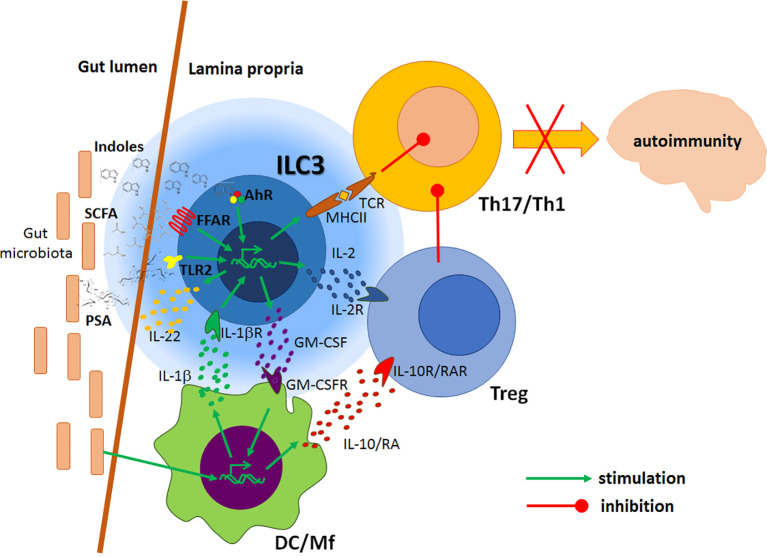Figure 2.
Regulatory effects of gut ILC3 on the CNS autoimmunity. Local antigen-presenting cells (DC/Mf) produce IL-1β under the influence of gut microbiota. IL-1β stimulates ILC3 to produce GM-CSF, which potentiates tolerogenic properties of DC, IL-22 that stimulates intestinal barrier, and IL-2 that favours Treg. DC/Mf also produce IL-10 and retinoic acid (RA) which stimulate Treg activity. ILC3 present antigens to effector Th1 and Th17 cells, but without adequate co-stimulation, thus inhibiting their functions. Products of gut microbiota, such as polysaccharide A (PSA) and processed nutrients, such as short-chain free fatty acids (SCFA) and indoles act on ILC3 through their respective receptors to potentiate their immunomodulatory actions. Consequently, encephalitogenic Th cells are inhibited in the gut, thus ILC3 activity presumably leads to the amelioration of the CNS autoimmunity.

